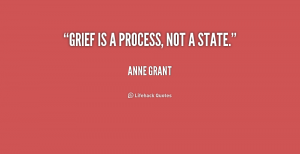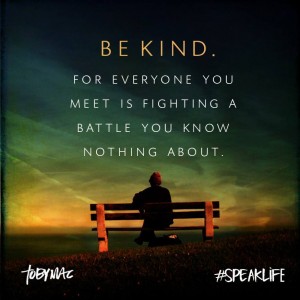
www.ascendbmgmt.com
#Grief, #Death, #Dying, #Peace

www.ascendbmgmt.com
#Grief, #Death, #Dying, #Peace

No need to wait. Start the conversation today with your loved ones. Why guess after the fact?
#ascendbmgmt, #Death,#Brave, #Family, #Lovedones, #Conversation, #Speak, #Lastwishes

My Gift of Grace is a conversation game. In the box, you’ll find an instruction sheet, 47 Question Cards, and 24 Thank You Chips. During each turn, all the players have a chance to share their answers to the same question, trading chips as part of the game play.
Questions in the game cover a wide variety of topics about living and dying well, and games can last anywhere from 20 minutes to three hours or more.
The game can be played by families, co-workers, teams, strangers, or a mix of any of these. There are no age restrictions or experiences you need to have before you play. The game adjusts itself to the level of comfort of the players and to how long a group wishes to play.

www.Mygiftofgrace.com
If you feel the game may not work for your family or friends then {ABM} mediation can help bring everyone to the table or {ABM} can come in and present different options and role plays for your family the what if…
My gift of grace is the perfect Holiday gift for the entire family.
#ascenbmgmt #abmmediation #Family #Death #Living
To much is given, much is required.

#Ascendbmgmt, #Happy Thanksgiving, #Happy, #Peaceful, #Family, #Friends, #Thankful, #Grateful, #Blessings
Mediation is the perfect extension in the growth of Ascend Bereavement Management {ABM} and its outreach with helping families cope not only with death but with the issues that one encounters before a loved one falls ill and those decisions that need to be agreed upon and decided on by all after the illness.
What is Mediation and why does it help?
Mediation: a neutral person called a “mediator” helps the parties try to reach a mutually acceptable resolution of the dispute. The mediator does not decide the case, but helps the parties communicate so they can try to settle the dispute themselves. Mediation may be particularly useful when family members, neighbors, or business partners have a dispute. Mediation may be inappropriate if a party has a significant advantage in power or control over the other.
WHY?
1. Mediation is held in a controlled and neutral environment for all parties to discuss the issues at hand and how you have arrived to your present issues.
2. First-step before engaging attorney.
3. Understanding the goals of the family if/when you need to engage an attorney.
If you have a loved one in the hospital/nursing home and are having difficulty communicating with staff and doctors,
Bio-ethics consultancy is also available.
NY State Certified.
Call for additional information and rates.
Leslie Short
917 627 6974
www.ascendbmgmt.com
Continue to check our site and facebook page for helpful articles and tips on dealing with aging, healthcare and bereavement.
FB: https://www.facebook.com/AscendBereavementManagement
Twitter: ABeravementMgt
You want to protect your wealth and ensure that your assets will be passed on to whom you choose under the conditions you specify. A trust can give you this control while guarding against disputes, minimizing your taxes and protecting your privacy.
At its core a trust is simply a legal relationship in which an owner (grantor) transfers assets such as stocks, bonds, cash, real estate, artwork or insurance policies to another party (trustee) for the benefit of a person or organization (beneficiary).
The reasons people create trusts are, of course, as myriad and complicated as life itself. But at their root, the goals of most trusts are related to asset protection, minimization of tax liability and the orderly disposition of assets. Trusts are often helpful in:
Every trust is either revocable or irrevocable—it can either be undone or it cannot. A revocable trust is created while the grantor is alive. It allows the grantor to maintain control and change or terminate the trust. It may also be used to help protect and manage assets if the grantor becomes incapacitated and to avoid probate—the legal process of settling an estate.
An irrevocable trust can be created during life or at death, and typically cannot be changed once it has been established. It is usually motivated by the desire to minimize transfer tax (estate, gift or generation- skipping transfer tax). Examples of trusts that can be irrevocable include credit shelter trusts, irrevocable life insurance trusts, charitable remainder trusts, charitable lead trusts, grantor retained annuity trusts and dynasty trusts.
A credit shelter trust shelters assets from federal estate taxes* for beneficiaries, typically children and the surviving spouse. Moreover, it may allow the surviving spouse to manage the trust investments and receive income (and possibly principal) from the trust. It is typically funded at the death of the first spouse utilizing the federal applicable exclusion amount, which is the amount that can pass free of the federal estate tax.
An irrevocable life insurance trust (ILIT) allows for life insurance proceeds to be excluded from the grantor’s taxable estate, thus eliminating estate tax liability on those assets. The ILIT can provide income and/or principal to heirs and provides family members with funds to pay estate taxes and other expenses.
*Note: On December 31, 2012, when current tax laws are set to expire, rates and exemptions will revert to 2001 levels, unless there is new legislation.
A charitable remainder trust (CRT) can be a powerful tool when you are interested in charitable giving, but are concerned with over-committing at the expense of your lifestyle or family. In a CRT, the grantor places assets in the trust (usually these are highly appreciated, low cost basis assets), which the trust can then sell. Neither the grantor nor the trust incurs any capital gains tax. The grantor then receives an annuity or percentage of the trust’s assets (an arrangement that can be set up for life, or for a specified period of time). After the grantor’s death or the specified period, the remainder passes to charity.
In a charitable lead trust (CLT), assets are placed in the trust and a named charity receives an annuity or a percentage of the trust’s assets over the life of the grantor or a specified period of time. At the end of the time period the remaining assets are transferred to beneficiaries (typically children) free of any additional gift or estate taxes.
A grantor retained annuity trust (GRAT) provides a way to pass highly appreciated assets to family members at discounted levels. In a GRAT, the grantor receives an annuity paid by the trust over a specific time period. And at the end of the period, any property remaining in the trust is passed to the children free of estate or gift taxes.
A dynasty trust can provide a legacy for multiple generations by utilizing the grantor’s exemption from the generation-skipping transfer tax. Dynasty trusts are funded with various assets and can grow to very substantial sums over long periods of time.
A testamentary trust does not come into existence until your death. At that time, the testamentary trust works like other trusts, with the document controlling how trust assets are managed and distributed to beneficiaries.
However individuals raise the issue, and by whatever name the appropriate legal structure may be called, trusts will continue to grow in importance as preparations are made to pass today’s wealth on to the next generation. By knowing the basics, you will be in a better position to connect your wishes with our capabilities in trust.
To find out more, contact your Financial Advisor.
Adam C. Bell, CFP®, AIF®
Vice President-Wealth Management
Guided Portfolio Manager
Financial Advisor
Citi Personal Wealth Management
1166 Avenue of the Americas
New York, NY. 10036
Telephone: 212-626-8113
Fax: 347-394-5309
adam.c.bell@citi.com
INVESTMENT AND INSURANCE PRODUCTS: NOT FDIC INSURED · NOT A BANK DEPOSIT NOT INSURED BY ANY FEDERAL GOVERNMENT AGENCY-NO BANK GUARANTEE – MAY LOSE VALUE
(article written by CITI Trust- Citibank)
#Trust #Family #Money #Mediation #Banking #Law #ElderLaw #Probate

#ascendmgmt, #Family, #Celebrate, #NewYear, #Friends
 #ascendbmgmt #Life #Lost #Love #Grief #Change
#ascendbmgmt #Life #Lost #Love #Grief #Change

#ascendbmgmt #ascendbereavementmgt #Compassion